Description
Cyclosporine is an immunosuppressive medication that is commonly used to prevent organ transplant rejection and to treat various autoimmune diseases, such as rheumatoid arthritis, psoriasis, and Crohn’s disease. It works by suppressing the body’s immune system, which can help reduce inflammation and other symptoms associated with these conditions. However, cyclosporine can also increase the risk of infections and certain types of cancer, so it is typically used only when other treatments have failed or are not well-tolerated. It is important for patients taking cyclosporine to be closely monitored by their healthcare provider to ensure the medication is working effectively and to manage any potential side effects.
Dosage and administration:
Cyclosporine is available in both oral and injectable forms. The specific dosage and frequency of administration will depend on the condition being treated, the patient’s age and weight, and other factors. For organ transplant patients, cyclosporine is typically given as a continuous infusion immediately after the transplant surgery, followed by oral administration once the patient is able to tolerate oral medications.
Cyclosporine is metabolized by the liver and primarily excreted through the bile. It is important for patients to maintain adequate hydration and kidney function while taking cyclosporine, as dehydration or kidney dysfunction can increase the risk of toxicity.
Side effects:
Common side effects of cyclosporine include tremors, increased blood pressure, headache, gastrointestinal disturbances (nausea, vomiting, diarrhea), and changes in kidney function. Rare but serious side effects include seizures, infections, and malignancies such as lymphoma.
Patients taking cyclosporine should be closely monitored for signs of toxicity, including kidney dysfunction and high blood pressure. Laboratory tests, such as blood pressure checks, blood tests (including liver and kidney function tests), and electrocardiograms (ECGs), may be performed regularly to monitor for potential side effects.
Drug interactions:
Cyclosporine can interact with several other medications, including certain antibiotics, antifungal agents, and antiseizure drugs. It is important for patients to inform their healthcare provider about all medications they are taking, including over-the-counter drugs, vitamins, and supplements, to minimize the risk of drug interactions.
Patients taking cyclosporine should avoid live vaccines, as they may be less effective and could potentially cause serious infections in immunosuppressed individuals.
Pregnancy and breastfeeding:
Cyclosporine is classified as a Category C medication during pregnancy, which means it may cause harm to the fetus. Pregnant women or those planning to become pregnant should discuss the risks and benefits of cyclosporine with their healthcare provider.
Cyclosporine is excreted in breast milk, so women who are breastfeeding should consult their healthcare provider before taking this medication.
Conclusion:
Cyclosporine is a powerful immunosuppressive medication that can be effective in treating a variety of autoimmune conditions and preventing organ transplant rejection. However, it is associated with several potential side effects and drug interactions, so patients should be closely monitored by their healthcare provider while taking this medication.




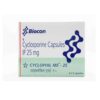
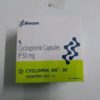
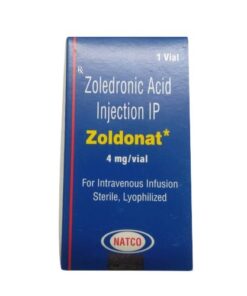
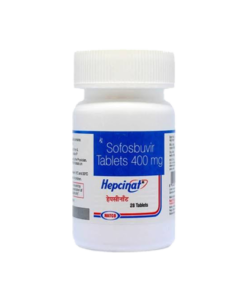

20 reviews for Cyclophil Me (Cyclosporine)